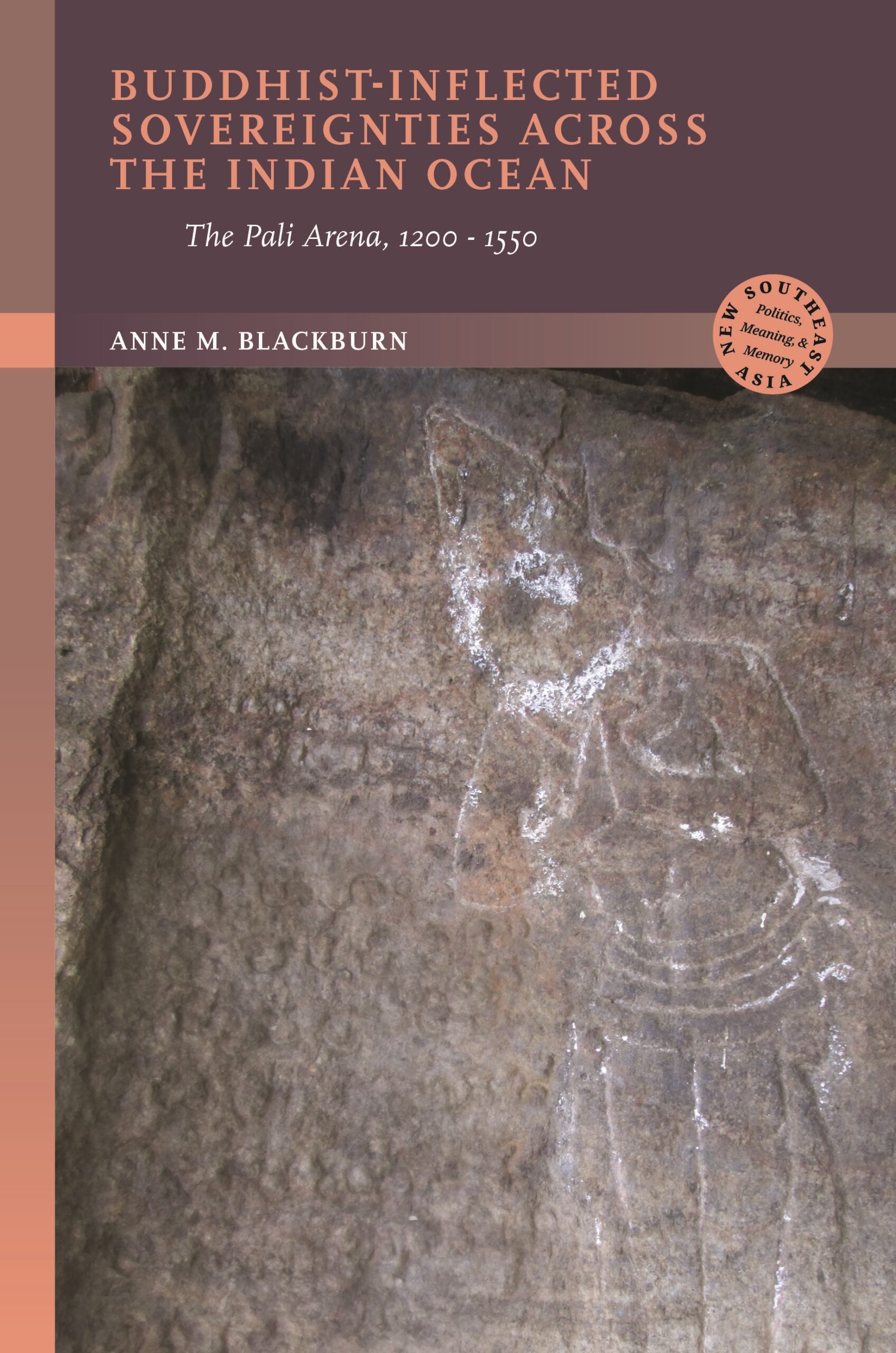Buddhist-Inflected Sovereignties across the Indian Ocean: The Pali Arena, 1200–1550
- About the Book
-
Buddhist-Inflected Sovereignties across the Indian Ocean draws attention to the varied, historically contingent, and sometimes competing, arguments for and about sovereignty that operated in the Pali arena during the first half of the second millennium AD. It was a time of expanding interaction within the Indian Ocean just prior to Portuguese colonial presence in Southern Asia. Developing a linked series of case studies and examining territories now subsumed within the nation-states of Sri Lanka, Burma/Myanmar, and Thailand, Blackburn examines sovereign arguments expressed textually, as well as in the built environment, by persons with an interest in the teachings and institutions associated with Gotama Buddha. These cases show that no single model of Buddhist-inflected sovereignty dominated the Pali arena during this time, and that there was no stable vision of “Buddhist kingship.” Rather, over time, there was an accrual of possible models and pathways for argumentation about how sovereigns could and should relate to buddha-sāsana. Taking inspiration from diverse sources transmitted through multiple forms and media, arguments for and about sovereignty in the Pali arena were contested and rapidly changing. As the Indian Ocean increasingly shaped the flow of people, objects, and ideas, more peoples and territories participated in the Pali arena, attracted by its intellectual and aesthetic resources.
Drawing on extensive scholarship and a wide range of multilingual source materials from premodern Sri Lanka, Burma, Thailand, and Cambodia, Anne M. Blackburn develops innovative conclusions about the relationships between textuality, sovereignty, maritime connectivity, and material culture in each of these areas. The book contributes simultaneously to several fields of study: the intellectual history of Southern Asia, literary and historical scholarship on Buddhism, and historical studies of the Indian Ocean. By offering accessible yet in-depth analysis, Buddhist-Inflected Sovereignties across the Indian Ocean connects research fields and introduces new interpretive possibilities for the study of sovereignty, politics, premodern textual cultures, and Buddhism.
- About the Author(s)
-
Anne M. Blackburn, Author
Anne M. Blackburn is professor of South Asia studies and Buddhist studies at Cornell University.
- Reviews and Endorsements
-
- The author argues that monolithic understandings of “Buddhist kingship” that have emerged from earlier scholarship were based narrowly on relevant portions of early Pali literature, and stand in need of qualification because intellectual and political history belie complex dynamic processes that have conditioned, qualified or transformed articulations of power in specific locales within the larger “Pali World.” The merit of this thesis is “portability.” That is, both the argument and the approach can be deployed in many other historical or sociocultural contexts in the Buddhist world. This is a study that is not only germane to understanding the dynamics of power throughout Buddhist South and Southeast Asia, but is provocative theoretically and methodologically in general.
—John Clifford Holt, Bowdoin College in Brunswick, Maine - Blackburn has conducted extensive scholarship into a wide range of source materials from premodern Sri Lanka, Burma, Thailand, and Cambodia and then, significantly, shown what can be concluded about textuality and sovereignty in each of these areas. She explores in an original and substantive manner how emerging Buddhist polities centered in Dambadeniya, Ayutthaya, Chiang Mai, and Hamsavati all drew upon elements from Pali texts and Buddhist institutions to express sovereignty in their respective local settings. The detailed, critically informed attention to historical context and difference will make this work valuable for scholars in a number of different fields related to Buddhism and Asian studies. Blackburn’s work is rich with historical material and theoretical reflections.
—Stephen C. Berkwitz, Missouri State University
- The author argues that monolithic understandings of “Buddhist kingship” that have emerged from earlier scholarship were based narrowly on relevant portions of early Pali literature, and stand in need of qualification because intellectual and political history belie complex dynamic processes that have conditioned, qualified or transformed articulations of power in specific locales within the larger “Pali World.” The merit of this thesis is “portability.” That is, both the argument and the approach can be deployed in many other historical or sociocultural contexts in the Buddhist world. This is a study that is not only germane to understanding the dynamics of power throughout Buddhist South and Southeast Asia, but is provocative theoretically and methodologically in general.





